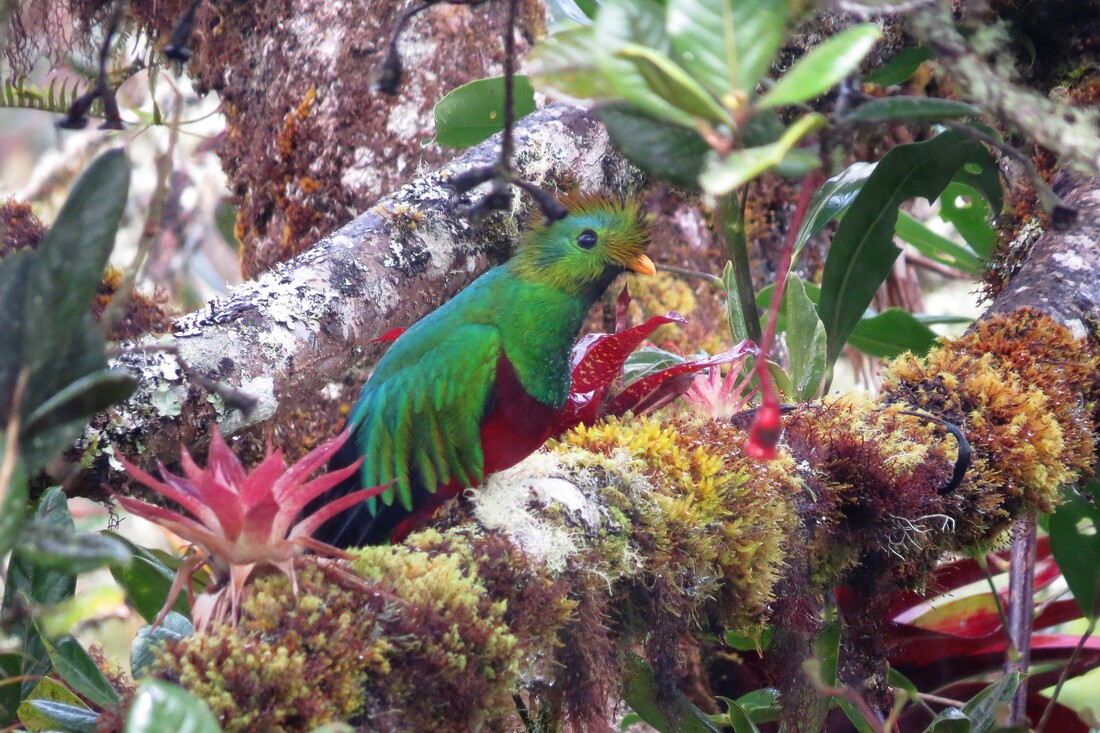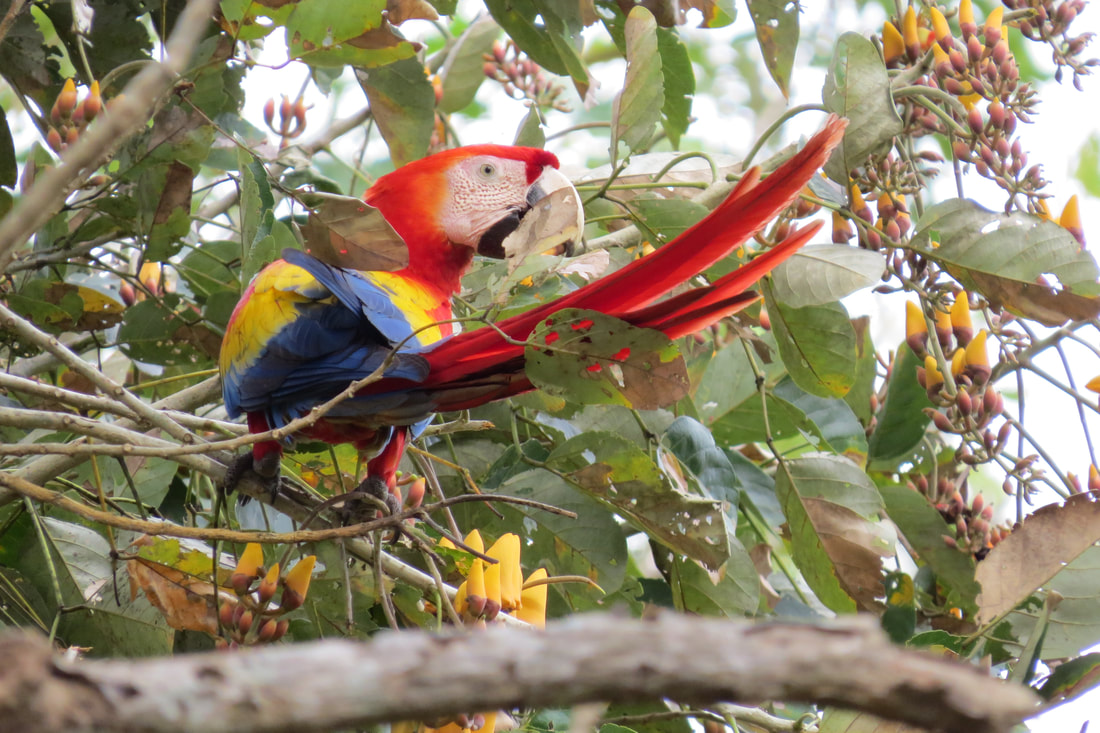Above: Yellow-throated Euphonia by Adam Betuel
costa rica: Quetzals to macaws
from the highlands to the coast
March 17 to 27, 2022
This trip is now full. Continue with the registration process to place your name on the waiting list. We will contact you if a space opens and will collect your payment at that time. Please register for wait-listed trips separately from any other registrations or transactions to ensure your registration is processed successfully.
Georgia Audubon Guide: Adam Betuel, Director of Conservation
Local Guide: Carlos “Charlie” Gomez, Costa Rica Expeditions
Group Size: Maximum group size of 12 participants
Georgia Audubon Member Price: $4,100* per person
Non-member Price: $4,150* per person (includes a one-year Georgia Audubon membership)
Single Supplement: +$555
*Based on double occupancy
Lodging Note: Depending on group construction, single travelers may be asked to pay a single supplement if we are unable to pair you with another guest. All efforts will be made to pair individuals to avoid this expense, though it cannot be guaranteed. Impacted travelers, should they decide to cancel, will be reimbursed following the cancellation policy below.
Let’s do it again! In early 2020, Georgia Audubon offered a memorable trip to Costa Rica with local ecotourism operators Costa Rica Expeditions (leaders for 40+ years). Ten days and 382 species later, it was clear that we needed to come back sooner rather than later. Thus, we are thrilled to announce our 2022 return trip to the tropical bird haven that is Costa Rica. This small and safe country is synonymous with green landscapes, ecotourism, and avian life. On this 11-day tour, we will sample as much as we can, including cool highland forests, dense lowland jungles, mangroves, and everything in-between. Hundreds of bird species are likely, including some of the region’s most famous like Resplendent Quetzal, Scarlet Macaw, Keel-billed Toucan, numerous tanagers and antbirds, and a nice variety of temperate birds who will be preparing for their journey northward. Along with stellar birding and breathtaking landscapes, the group will visit a shade-grown coffee farm and will have the opportunity to join bird banders from the Costa Rica Bird Observatories. Join us on an amazing opportunity that will be overloaded with birds, good company, and adventure.
Local Guide: Carlos “Charlie” Gomez, Costa Rica Expeditions
Group Size: Maximum group size of 12 participants
Georgia Audubon Member Price: $4,100* per person
Non-member Price: $4,150* per person (includes a one-year Georgia Audubon membership)
Single Supplement: +$555
*Based on double occupancy
Lodging Note: Depending on group construction, single travelers may be asked to pay a single supplement if we are unable to pair you with another guest. All efforts will be made to pair individuals to avoid this expense, though it cannot be guaranteed. Impacted travelers, should they decide to cancel, will be reimbursed following the cancellation policy below.
Let’s do it again! In early 2020, Georgia Audubon offered a memorable trip to Costa Rica with local ecotourism operators Costa Rica Expeditions (leaders for 40+ years). Ten days and 382 species later, it was clear that we needed to come back sooner rather than later. Thus, we are thrilled to announce our 2022 return trip to the tropical bird haven that is Costa Rica. This small and safe country is synonymous with green landscapes, ecotourism, and avian life. On this 11-day tour, we will sample as much as we can, including cool highland forests, dense lowland jungles, mangroves, and everything in-between. Hundreds of bird species are likely, including some of the region’s most famous like Resplendent Quetzal, Scarlet Macaw, Keel-billed Toucan, numerous tanagers and antbirds, and a nice variety of temperate birds who will be preparing for their journey northward. Along with stellar birding and breathtaking landscapes, the group will visit a shade-grown coffee farm and will have the opportunity to join bird banders from the Costa Rica Bird Observatories. Join us on an amazing opportunity that will be overloaded with birds, good company, and adventure.
Please contact Adam Betuel by email with any questions.
Please Note: Credit card processing fees are now included in the registration price.
Please Note: Credit card processing fees are now included in the registration price.
trip overview
Click on each day for more information. Number of bird species expected: 350-400
day 1: arrive in san jose
The group will arrive at the Juan Santamaria International Airport where we will then be transported to Hotel Bougainvillea. Depending on our arrival time, trip-goers will have the opportunity to bird the hotel grounds or relax and adjust to the new surroundings. This evening, we will be introduced to our local guide, Charlie Gomez, and possibly our driver/guide, Marco (aka Niño).
Lodging: Hotel Bougainvillea
Lodging: Hotel Bougainvillea
day 2: San Jose to the Copey Valley
We will start the morning with some birding on the hotel grounds. Rufous-tailed Hummingbird, Social Flycatcher, and Hoffman’s Woodpecker should be common, with Lesson’s Motmot, Rufous-capped Warbler, and even White-eared Ground-Sparrow possible. With a species list over 275, Hotel Bougainville is a great location to get you ready for what Costa Rica has in store! After breakfast, we will head south towards the Copey Valley. En route, we will stop by Finca Cristina to learn about shade-grown coffee and how it aids local and migratory birds. This farm is pesticide free and takes many steps to be bird-friendly, probably the reason more than 300 species have been found here. After some birding and coffee sampling, we will continue towards the Dota region of the Copey Valley. As we arrive at the Toucanet Lodge, you will be struck by the active hummingbird and fruit feeders. The afternoon and evening will be spent glued to the feeders, looking for Magenta-throated Woodstar, Blue-vented Hummingbird, and Violet Sabrewing. Other possible birds include the Spotted Wood-Quail, familiar species like Tennessee Warbler and Summer Tanager, as well as the lodge’s namesake, the Emerald Toucanet.
Lodging: El Toucanet Lodge
Lodging: El Toucanet Lodge
Day 3: Paraiso de Quetzal
After coffee by the feeders, we will head up and over the crest of the Talamanca Mountains to the cool highlands of the Caribbean slope. Though only a short drive away, the bird life and habitat changes, ushering in some REAL highlights. Our first stop will be to look for the iconic Resplendent Quetzal. The quetzal is often the top bird on any trip to Central America and in this part of the country, some landowners have moved away from destructive land practices to encourage bird life and the travelers that follow. Other species that share the forests and its native avocado trees include Ruddy Treerunner, Flame-colored Tanager, and Scintillant Hummingbird.
Just down the road from the quetzal spot is the Paraiso de Quetzal lodge and its lush grounds. We will walk the trails here looking for more Talamanca specialties like Black Guan, Black-capped Flycatcher, Black-and-yellow Silky-flycatcher, and Sooty-capped Chlorospingus. While the trails are typically fruitful, the hummingbird feeders here can explode with birds. Fiery-throated, Talamanca, and Volcano Hummingbirds come within arm’s reach along with Lesser Violetears and Yellow-thighed Brushfinches. It is hard to eat the restaurant's amazing food due to all the activity. The rest of the day will be spent visiting other mountainous hotspots before settling in to another night back at Toucanet Lodge.
Lodging: El Toucanet Lodge
Just down the road from the quetzal spot is the Paraiso de Quetzal lodge and its lush grounds. We will walk the trails here looking for more Talamanca specialties like Black Guan, Black-capped Flycatcher, Black-and-yellow Silky-flycatcher, and Sooty-capped Chlorospingus. While the trails are typically fruitful, the hummingbird feeders here can explode with birds. Fiery-throated, Talamanca, and Volcano Hummingbirds come within arm’s reach along with Lesser Violetears and Yellow-thighed Brushfinches. It is hard to eat the restaurant's amazing food due to all the activity. The rest of the day will be spent visiting other mountainous hotspots before settling in to another night back at Toucanet Lodge.
Lodging: El Toucanet Lodge
Day 4: Bird banding with Costa rica bird observatory
Day 4 will have us bidding farewell to Toucanet Lodge as we head further south. Our first stop will be to the Madre Selva location of the Costa Rica Bird Observatory network. Researchers here are collaborating with the US Forest Service and the Klamath Bird Observatory in an effort to understand bird populations, migratory and residential to Costa Rica. We will join the researchers and banders to see what they catch in the nets. Anything can show up here, but some birds we may get to see in the hand include Collared Redstart, Chestnut-capped Brushfinch, and Black-billed Nightingale-Thrush.
After leaving Madre Selva, we will drive south, passing by/through the Cerro de la Muerte (“Mountain of Death”). This area, the highest in Costa Rica, is comprised of the Paramo habitat and is home to some special birds like the Timberline Wren and Volcano Junco. After looking for these specialties, we will continue to Talari Lodge. Talari is home to over 400 species of birds and we will spend the afternoon looking for as many as possible. Fiery-billed Aracari, Olivaceous Piculet, Golden-hooded & Speckled Tanager, and Red-legged Honeycreeper will be on the target list.
Lodging: Talari Lodge
After leaving Madre Selva, we will drive south, passing by/through the Cerro de la Muerte (“Mountain of Death”). This area, the highest in Costa Rica, is comprised of the Paramo habitat and is home to some special birds like the Timberline Wren and Volcano Junco. After looking for these specialties, we will continue to Talari Lodge. Talari is home to over 400 species of birds and we will spend the afternoon looking for as many as possible. Fiery-billed Aracari, Olivaceous Piculet, Golden-hooded & Speckled Tanager, and Red-legged Honeycreeper will be on the target list.
Lodging: Talari Lodge
Day 5: Los Cusingos
Alexander Skutch wrote over 40 books and 200 scientific papers on ornithology, with a focus on the birds of Central America. Considered to be one of the great ornithologists, Skutch has a special connection to Costa Rica. Skutch purchased a farm in Costa Rica in 1941 and lived there the rest of his life, conducting many of his projects and observations on his land. Today, this 192 acre property is a nature reserve (Los Cusingos) that is home to some of Dr. Skutch’s personal items as well as a species list hovering around 415. Gray-cowled Wood-rail, Roadside Hawk, Slaty-tailed Trogon, Chestnut-backed Antbird, and Orange-collared Mannakin may all treat us with their presence. If we are really lucky, we may stumble across the mind-boggling Turquoise Cotinga.
After our visit to Los Cusingos, we will continue on to the town of San Vito, not far from the Panamanian border. Then, we will visit the Wilson Botanical Garden. This garden, and the Las Cruces Research Stations, are owned by the Organization for Tropical Studies. The 30-acre garden hosts over 1,000 genera of plants, 500 species of palms, and dozens of bromeliads, heliconias, gingers, and orchids. The surrounding native forest, spanning over 900 acres, adds a few thousand more native plants, over 100 types of mammals, and for the 3rd stop in a row, over 400 species of birds. The afternoon and evening will be spent enjoying the amazing diversity this place holds, with Green Honeycreeper, Bananaquit, and Bay-headed Tanager likely being common.
Lodging: Las Cruces
After our visit to Los Cusingos, we will continue on to the town of San Vito, not far from the Panamanian border. Then, we will visit the Wilson Botanical Garden. This garden, and the Las Cruces Research Stations, are owned by the Organization for Tropical Studies. The 30-acre garden hosts over 1,000 genera of plants, 500 species of palms, and dozens of bromeliads, heliconias, gingers, and orchids. The surrounding native forest, spanning over 900 acres, adds a few thousand more native plants, over 100 types of mammals, and for the 3rd stop in a row, over 400 species of birds. The afternoon and evening will be spent enjoying the amazing diversity this place holds, with Green Honeycreeper, Bananaquit, and Bay-headed Tanager likely being common.
Lodging: Las Cruces
Day 6: Las Cruces
The entire day will be spent exploring Las Cruces, including the botanical gardens, research station, and adjacent forest. Familiar faces like Golden-winged, Tennessee, and Blackburnian Warbler, Baltimore Oriole, and Swainson’s Thrush all may be present. Giant Tinamous will give their tremulous calls, Piratic Flycatchers will squeal overhead, and White-crowned Parrots will flyby in flocks.
Lodging: Las Cruces
Lodging: Las Cruces
Day 7: Las Cruces take 2!
Las Cruces is so biodiverse, we will spent another entire day exploring the grounds. How many of the 425+ species can we see in 2+ full days?!?
Lodging: Las Cruces
Lodging: Las Cruces
Day 8: Travel to Uvita
After one more morning birding at Las Cruces, we will travel westward to the town of Uvita near the Pacific coast. We will fit in birding stops en route and in Uvita, but the highlight will be the La Cusinga Lodge. This lodge, our home for the next two nights, has stunning elevated views of the ocean that occasionally treats viewers to breaching whales. Overhead, one can find Magnificant Frigatebirds, Brown Pelicans, and the less common Brown Booby. Away from the ocean, Blue-throated Goldentail, Orange-chinned Parakeet, and Palm Tanager will flit by.
Lodging: La Cusinga Lodge
Lodging: La Cusinga Lodge
Day 9: Oro Verde
During this day, we will split our time between the grounds of La Cusinga and the nearby Oro Verde Nature Reserve. At Oro Verde we will hike through majestic primary forest searching for Black-hooded Antshrike, Red-capped Manakin, and Gray-headed Tanager. Forest edges may have calling Yellow-throated Toucan, Golden-naped Woodpecker, and the common yet stunning Blue-gray Tanager. Today will be a day loaded with birds, all within a very short distance to our lodge.
Lodging: La Cusinga
Lodging: La Cusinga
Day 10: Carara and Rio Tarcoles
Today we will say goodbye La Cusinga and drive north along the Pacific coast. Our destination is the Carara National Park, famous for its population of Scarlet Macaws. There is no shortage of locations and birds to target around Carara, but we may come across Orange-billed Sparrow, White-throated Magpie Jay, Ruddy Quail-Dove, and Baird’s Trogon. After a productive late morning and early afternoon, we will set off on an evening boat trip exploring the Rio Tarcoles. From the boat, we will likely spot Bare-throated Tiger-Heron, Boat-billed Heron, American Pygmy Kingfisher, Southern Lapwing, Common Black Hawk, and hopefully Mangrove Hummingbird. Hundreds of birds pouring down the river and out of the mangroves on their way to roost is quite the spectacle. Oh, and let’s not forget the river's famous crocodiles. We will spend our final night in Costa Rica at the lovely Hotel Villa Lapas.
Lodging: Hotel Villa Lapas
Lodging: Hotel Villa Lapas
Day 11: Heading Home
We will try and squeeze in a bit of dry forest birding around the hotel before departing for San Jose (maybe one last Turquoise-browed Motmot!). Those with morning and afternoon departures will be taken to the airport while those departing later can have special arrangements made. Adios, Costa Rica!
additional details
Price Includes:
Price does not include:
Payment Plan:
Participants may pay in full by choosing the Georgia Audubon Member or Non-Member price. For those who wish to pay in multiple installments, we will accept a $500 down-payment at the time of registration ($550 for non-members). Thereafter, additional payments will be billed:
COVID-19 Travel Precautions:
As of May 2021, all participants in the Georgia Audubon Travel Program must be fully vaccinated against COVID-19 at the time of their travel date. According to the CDC, individuals are considered fully vaccinated when they are at least two weeks past the 2nd dose of the Moderna or Pfizer vaccine or at least two weeks past the single dose of the Johnson & Johnson vaccine. Georgia Audubon may verify participants' vaccination status at least two weeks prior to the travel dates. If you are unable or unwilling to comply with the COVID-19 travel precautions, please do not register for this event at this time.
In addition to Georgia Audubon’s vaccine requirement, Costa Rica currently requires (as of May 2021):
Finally, as of May 2021, the United States requires returning travelers to provide proof of a negative COVID test no more than 3 days before you travel by air into the United States and that you show your negative result to the airline before you board your flight. Being vaccinated doesn’t eliminate the need to produce a negative test.
Georgia Audubon will provide updates to organizational, airline, and national COVID-19 guidelines as they arise.
Cancellation Policy:
If notice of cancellation by the participant is received by September 15, 2021, a refund of all payments made will be given (less a $50 administrative fee). If notice of cancellation is received between September 16, 2021, and October 15, 2021, a 50% refund of the tour fee will be given unless the space(s) can be filled, in which case a full refund will be given (less a $50 administrative fee). Thereafter, all deposits and payments are non-refundable unless the space(s) can be filled, in which case a full refund will be given (less a $50 administrative fee). In the event of tour cancellation due to weather, strike, war, quarantine, or other unforeseen emergency situation, a 100% refund will be given, less any expenses incurred by the tour operator.
- One expert birding tour leader from Costa Rica Expeditions (Charlie Gomez) and a co-leader from Georgia Audubon (Conservation Director Adam Betuel).
- Accommodations in all destinations (double room with private bathroom and hot shower). A non-shared room is available for an additional single supplement fee.
- All ground transportation during the trip, including pick-up and drop-off at the airport.
- All meals from dinner on day 1 to breakfast on day 11. Additionally, a cooler with water and juices will be available on the bus at all times.
- All entrance fees to parks, as well as a shade-grown coffee farm visit and participation with local bird banders.
- Taxes
Price does not include:
- Costs of obtaining passports.
- Airfare and any accompanying baggage fees.
- Alcohol or specialty coffee (water and juice will be available during transportation, non-alcoholic beverages included with each meal)..
- Snacks, beverages, room service, or sightseeing not specified in itinerary.
- Souvenirs
- Laundry
- Travel insurance (currently required for entry; strongly recommended should that be eased)
- Medical costs
- Gratuities
- Personal communications
- Any other incidentals that participants may wish to purchase
Payment Plan:
Participants may pay in full by choosing the Georgia Audubon Member or Non-Member price. For those who wish to pay in multiple installments, we will accept a $500 down-payment at the time of registration ($550 for non-members). Thereafter, additional payments will be billed:
- Due by September 15, 2021, payment in the amount of $1,550/person.
- Due by December 15, 2021, payment in the amount of $2,050/person. The single supplement, if selected, will also be billed at this time.
COVID-19 Travel Precautions:
As of May 2021, all participants in the Georgia Audubon Travel Program must be fully vaccinated against COVID-19 at the time of their travel date. According to the CDC, individuals are considered fully vaccinated when they are at least two weeks past the 2nd dose of the Moderna or Pfizer vaccine or at least two weeks past the single dose of the Johnson & Johnson vaccine. Georgia Audubon may verify participants' vaccination status at least two weeks prior to the travel dates. If you are unable or unwilling to comply with the COVID-19 travel precautions, please do not register for this event at this time.
In addition to Georgia Audubon’s vaccine requirement, Costa Rica currently requires (as of May 2021):
- Completion of a Health Pass form.
- All travelers must have health/travelers insurance covering their accommodations in case of quarantine and medical expenses due to COVID-19. In the case of international insurance, the tourist must request from their insurer a certification issued in English or Spanish, noting at least three conditions:
- Traveler's name
- Validity of the effective policy during the visit in Costa Rica.
- Guarantee of coverage for medical expenses in cases of pandemic disease COVID-19 in Costa Rica, for at least USD $50,000.
- Minimum coverage of USD $ 2,000 for extended lodging expenses due to quarantine or can purchase a local insurance, offered by one of the authorized local insurance provider: INS Group, Sagicor, BlueCross BlueShield.
- Be symptom-free. Proof of vaccination or a negative test is not required at the time of writing.
Finally, as of May 2021, the United States requires returning travelers to provide proof of a negative COVID test no more than 3 days before you travel by air into the United States and that you show your negative result to the airline before you board your flight. Being vaccinated doesn’t eliminate the need to produce a negative test.
Georgia Audubon will provide updates to organizational, airline, and national COVID-19 guidelines as they arise.
Cancellation Policy:
If notice of cancellation by the participant is received by September 15, 2021, a refund of all payments made will be given (less a $50 administrative fee). If notice of cancellation is received between September 16, 2021, and October 15, 2021, a 50% refund of the tour fee will be given unless the space(s) can be filled, in which case a full refund will be given (less a $50 administrative fee). Thereafter, all deposits and payments are non-refundable unless the space(s) can be filled, in which case a full refund will be given (less a $50 administrative fee). In the event of tour cancellation due to weather, strike, war, quarantine, or other unforeseen emergency situation, a 100% refund will be given, less any expenses incurred by the tour operator.
Photos by Adam Betuel




